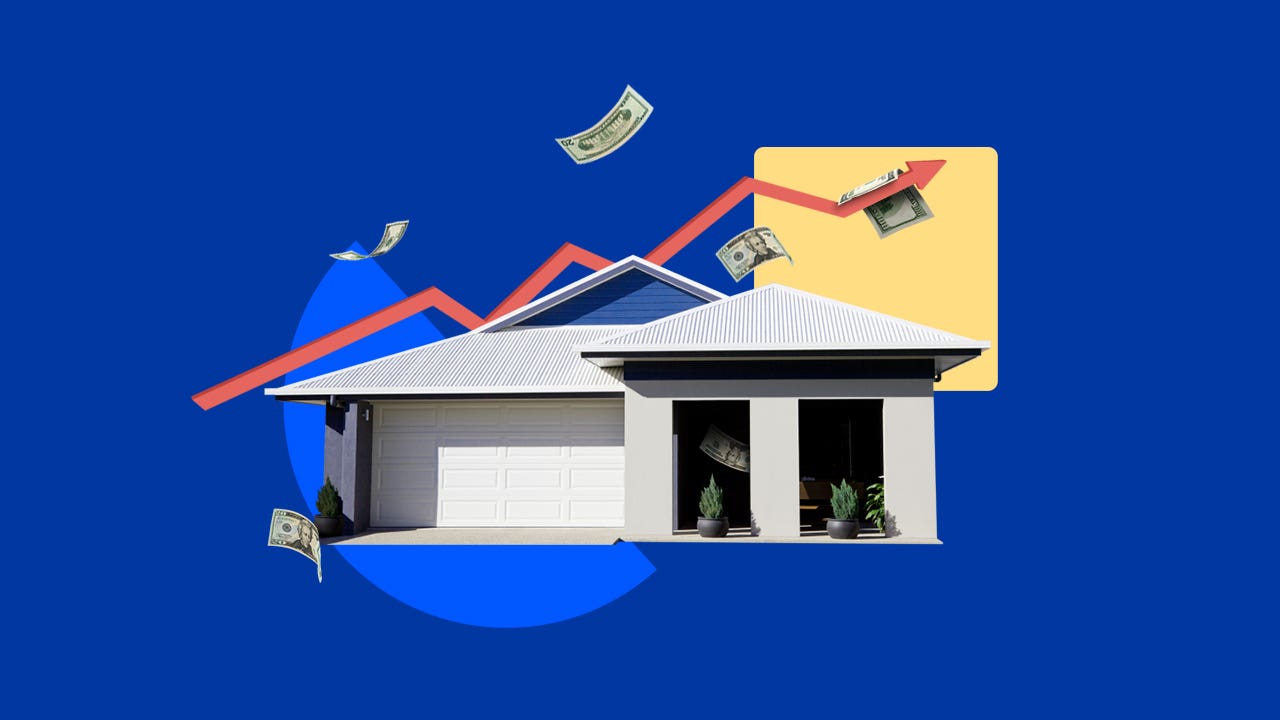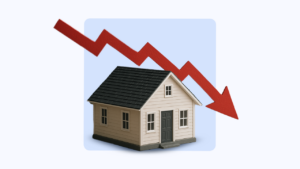Inflation and the housing market: Decoding the latest numbers

Inflation remains a stubborn foe, according to new consumer price index (CPI) data. Over the past year, the all items index increased 2.9 percent before seasonal adjustment, according to August figures from the U.S. Bureau of Labor Statistics, released Sept. 11. This is up from the July reading of 2.7 percent, and getting further from the Federal Reserve’s stated goal of 2 percent — however, it’s significantly lower than the 9.1 percent peak in 2022.
In response to slowing inflation and weakening jobs data, the Federal Reserve cut rates at its final three meetings of 2024 — by half a percentage point in September and another quarter point in both November and December. It has held steady in all its 2025 meetings so far, but is widely expected to announce another cut at its next meeting, which takes place Sept. 16-17.
“Today’s report is arguably the most-watched inflation data of the year, coming just days before the Federal Reserve meets,” said Lisa Sturtevant, chief economist of Bright MLS, in a statement. “Data from August suggests that inflation is not moving in the right direction and could actually be poised to take off again. However, it would have taken a much higher inflation reading to quell expectations for a rate cut next week.”
The housing market and inflation
The shelter category of the CPI, which includes housing costs, continues to be a stubbornly large contributor to inflation overall. In August, shelter increased 0.4 percent month-over-month and was once again the primary factor in the overall increase. It has increased 3.6 percent in the past 12 months.
Housing affordability continues to be a major pain point for Americans.— Mark Hamrick, Bankrate Senior Economic Analyst
While home-price growth may be slowing, Americans are still reeling from the extreme housing cost run-up of the past few years. “Shelter continues to be a contributor to the rise in the main gauge of prices at the retail level,” says Mark Hamrick, Bankrate’s senior economic analyst. “There is reason for optimism on this front if home-price gains moderate as expected. But having said that, there’s no dismissing the fact that housing affordability continues to be a major pain point for Americans.”
“The jumbo heavyweight of inflation is housing costs,” said Lawrence Yun, chief economist for the National Association of Realtors (NAR), in a recent statement. “Getting shelter costs under control with more housing supply will be the key to getting overall inflation fully tamed and for the Federal Reserve to ‘normalize.’ Fed rate cuts with high inflation will not result in lower mortgage rates. However, rate cuts because of falling inflation will mean meaningfully lower mortgage rates.”
The jumbo heavyweight of inflation is housing costs.— Lawrence Yun, Chief Economist, National Association of Realtors
Nationally, Cotality’s most recent home-price analysis reports that price growth dipped to 1.4 percent from July 2024 to July 2025. It forecasts that price growth will continue, though, with an increase of 3.9 percent predicted by July 2026. “July’s decline in home prices is atypical — the last two periods where we saw monthly declines in July was in 2022 and during [the] 2006-2008 period — but this year’s decline follows a year of relatively flat home prices and persistent weakness in homebuying demand,” said Cotality chief economist Selma Hepp in a statement. “And even though price weakness has spread across more markets, 50 percent continue to see prices increase.”
Fannie Mae’s Home Purchase Sentiment Index, meanwhile, fell by 0.4 points in August to 71.4. The survey found that 72 percent of consumers said that now is a bad time to buy a home.
What it means for buyers and sellers
Among these decidedly mixed signals, should you buy a home now, or wait? What about selling your home now?
For homebuyers
Housing inventory, while improving significantly, remains tight for potential buyers across the country. According to the most recent existing-home sales data from NAR, the country had a 4.6-month supply of inventory in July, not bad but still below the 5 to 6 months needed for a balanced market. June’s supply of new construction single-family homes was a different story though, with double that at 9.2 months, according HUD and the Census Bureau.
In addition, home prices continue to rise, with NAR’s median existing-home sale price in July at $422,400, up 0.2 percent year-over-year and representing 25 consecutive months of annual growth. And keep in mind that, even when inflation does come down, that doesn’t mean prices are falling — it just means prices are not rising as fast.
It’s OK to wait things out instead of buying now to beat further increases, especially if you’re a first-time homebuyer. While you’d be putting off building equity, you might find you’re in a better position to buy in the future, as the market cools and your income can potentially grow. That said, life circumstances might require you to buy a home now, regardless of market trends, and that’s as good a reason as any. Just make sure you plan to stay in the home for long enough to come out ahead when you eventually sell.
For home sellers
The continued growth in home prices, ever upward, may provide an opportunity for sellers to get an appealing price for their homes. This is good news, but keep in mind that if you then need to buy a new home, the tables will turn, and you’ll be subject to the same circumstances — and high prices — as other buyers.
And remember, location matters. While median sale prices overall are quite high, not every location is experiencing the same level of price growth. Home prices are falling in parts of Florida and Texas, while they’re still rising in pockets of the Midwest and Northeast. So, depending on where you live, the local market could be cooler or hotter than average.
Homebuying tips when prices are high
If you’re set on buying soon, here are a few ways you can stretch your housing budget:
- Put your down payment savings in a high-yield account: One upside to inflation and the Fed’s many rate hikes: higher interest rates on savings accounts. If you aren’t already, put the money you’re saving toward a down payment into a high-yield account. Just make sure the account allows you to access your money easily when it comes time for closing — some online savings accounts take three days to deliver your funds when you withdraw.
- Consider a mortgage lender with low or no fees: While it might be more convenient to get a mortgage at your bank, banks typically charge an origination fee, often 1 percent of the amount you borrow. Many non-bank and online lenders don’t, so if you can find a no-fee lender with attractive rates, you’ll keep more money in your pocket.
- Lock in your mortgage rate: When you find a lender and apply for a loan, ask about locking in your rate. Now’s not the time to take a chance on your monthly mortgage payment suddenly soaring in price, right before you’re set to close.
Additional reporting by Jim Probasco
Why we ask for feedback Your feedback helps us improve our content and services. It takes less than a minute to complete.
Your responses are anonymous and will only be used for improving our website.






